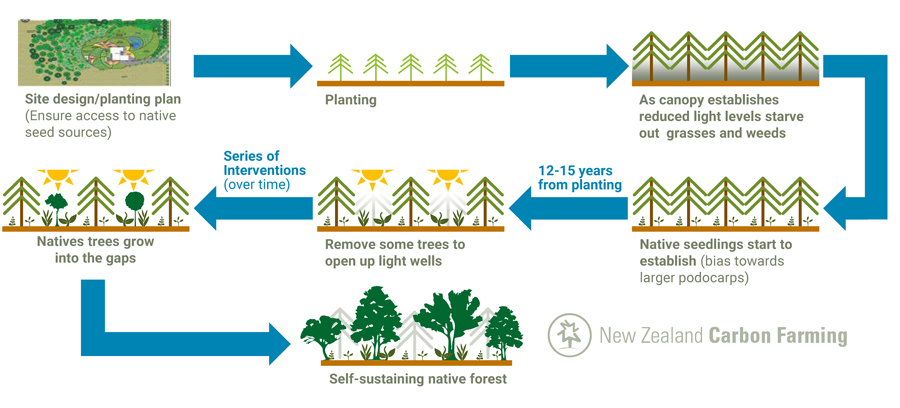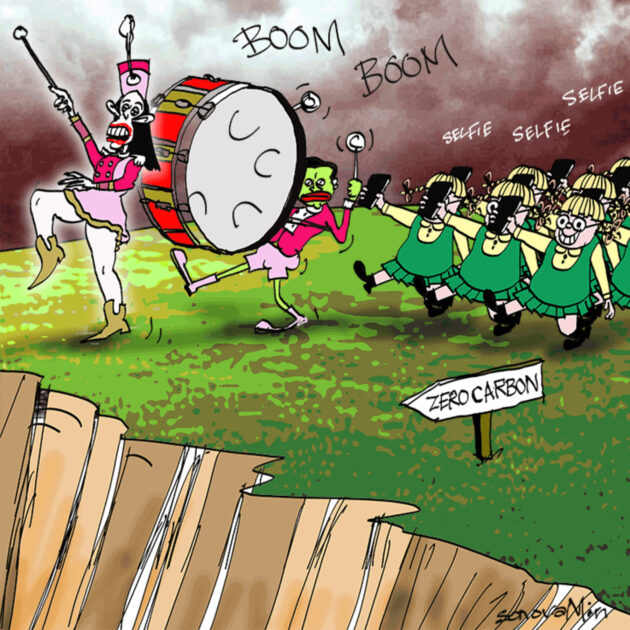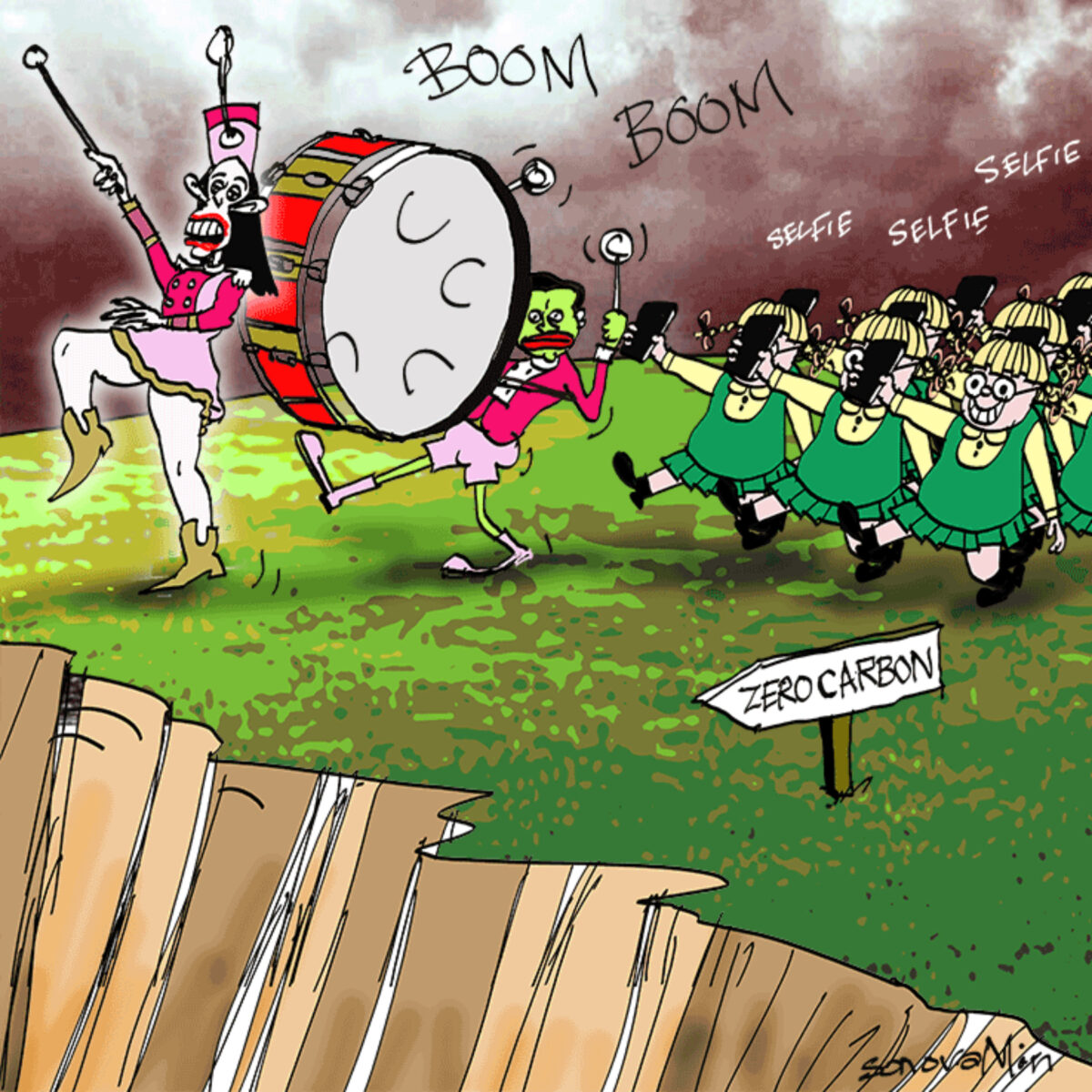It had to happen. The wokesters’ goal of carbon neutral by 2050 to save the planet is expected to adversely affect NZ food production when belching and farting stock reductions would be mandated by the government to ensure farmers comply.
Now stock numbers are being reduced in Waitomo where farmland is sold to NZ Carbon Farming who wind up the farm, remove the housing and farm buildings and plant pine trees.
Farmers can rightfully feel insulted by the use of the word ‘farming’ to describe planting pine trees and virtually walking away. No 4am starts for these carbon credit farmers who, once the planting is done, rest on their laurels waiting for the lucrative carbon credits to roll in.
Pine trees are not pruned or harvested after planting, although NZ Carbon Farming allows for the removal of some trees to allow for native plant regeneration.
“Regeneration is a natural process. Initially established as a nursery crop, a regenerating forest will, with succession and the right environmental attributes, ultimately comprise many species of native flora and fauna. A permanent regenerating native forest is self-sustaining. It is dynamic, resilient and has the ability to repair and replace itself over time.”

The Waitomo District Council forecasts lost rates revenue because, when the buildings are removed, the land is reclassified and the pine trees planted in their place attract lower rates.
“With carbon credits worth NZ$37 per tonne the trees were sinking carbon at a rate of 4.5 tonnes every minute of every day according to the NZCF website.
The revenue is reckoned at $10,000 an hour, $40,000 a day or $84,000 million each year.”
Waitomo News
Plant and pretty much walk away indicates a callous regard for traditionally highly valued farmland and the farming industry’s main job of supplying us with food, a significant waste of resource and drop in food supply.
What happens to the quality of the land? Grazing continually fertilises the ground requiring minimal input by the farmer to maintain high quality pasture. Turning pine forest back into productive land is doable but what do you do with the vast quantities of timber that cannot be processed?
What about the increased fire risk from non-thinned trees dropping branches and debris creating a flammable build-up of dead undergrowth?
If pine trees mature and aren’t harvested, eventually they fall down and lie around until they break down. Then flooding takes some of the debris into rivers to butt up against bridges and damage them as we saw in the recent Southland flooding.
And do we actually need more carbon sinks? There is growing interest in the need for more research before rushing into a commitment to reduce net emissions of all greenhouse gases (except biogenic methane) to zero carbon by 2050 and it’s not just the compliance costs of the Paris Accord.
A BFD commentator, Roger Milsom, said in General Debate this week:
“A political party with any integrity should undertake the following. Engage some botanists, (not bought and paid for climate scientists) to re-audit NZ’s carbon foot print. 90% of the country sequests carbon when taking ALL green matter into account. If it costs $500m it would be recovered in 2.8 months from the annual $1.4b we pay to the Paris Accord. We have been totally scammed by a corrupt system, and in spite of these payments we hear yesterday from fake modelling, our emissions have increased. Maybe Kiwis are now just so thick, they will believe anything these crooks dish up.”
The BFD General Debate

It is irresponsible of the government to go hell for leather implementing drastic changes to accommodate the debatable effect of man-made increases in CO2 driving climate change without considering the consequences of transitioning from food production to inherently get-rich-quick carbon credit schemes.
Please share this article so that others can discover The BFD

